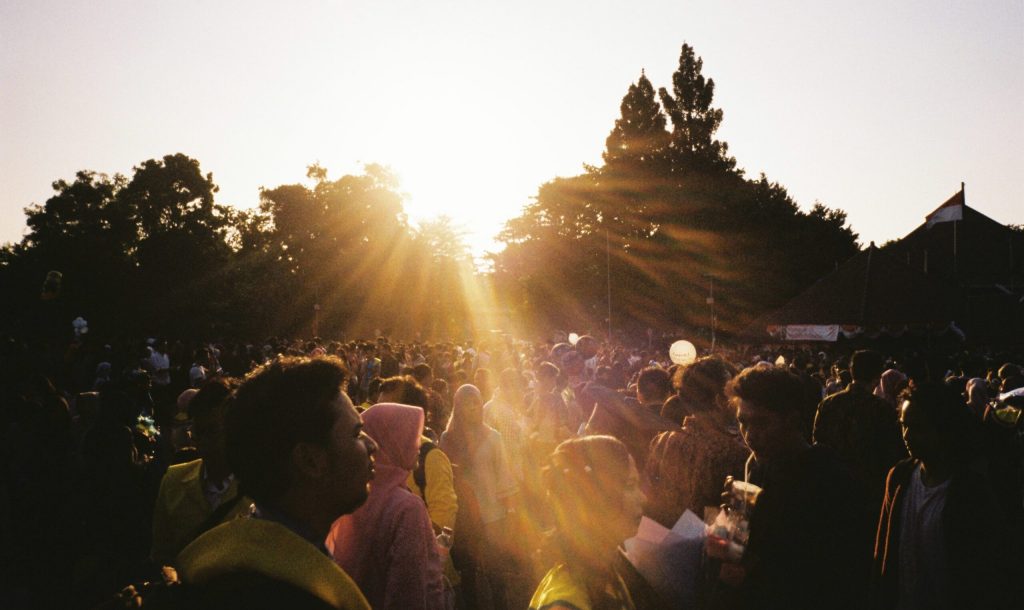Mental illness has historically dwelt in the shadows of the global health and development agenda and only recently has moved from the margins to become a central priority in research and policy. Mental disorders account for 30% of the worldwide non-fatal disease burden and 10% of the overall disease burden, including death and disability, and the cost to the global economy is estimated to reach as high as USD 6 trillion by 2030. Large middle- and low-income countries like Indonesia struggle with a plethora of challenges in delivering adequate mental health care to its 270.2 million citizens. Centralised funding for Indonesian mental health is only 1% of the national health budget; health expenditure is around 3% of GDP. National health programming such as Indonesia Sehat, the incorporation of mental health into primary care basic standards and voluntary contributions from provincial budgets does provide some additional resources. However, there is a severe shortage of mental health personnel, treatment and care facilities, especially outside the island of Java.
Estimations based on the 2018 Basic Health Survey (RISKESDAS) indicate there are 450 000 families in Indonesia with at least one member diagnosed with schizophrenia; given the high level of stigma against mental illness and psychosocial disabilities, we suggest this number is much larger. Many of these people are subject to human rights abuses, being left to languish in cages, stocks or chains referred to as Pasung. Human Rights Watch estimated that 12,800 people were experiencing Pasung at the end of 2018. Over 26.23 million people, more than the entire population of Australia, suffer from clinically relevant symptoms of anxiety and depression and 16.33 million likely meet the diagnostic criteria for a depressive disorder.
Although there is a shift to community-based outpatient models of care, Indonesia’s 48 mental hospitals and 269 psychiatric wards in general hospitals are still the primary sources of care. There are just over 1000 registered psychiatrists, 2000 clinical psychologists, 7000 community mental health nurses, 1500 mental health trained GPs and 7000 lay mental health workers unevenly distributed across the archipelago, (Ministry of Health Regulation on Pasung Management, 2017; Pols, 2020). Need outstrips supply, with eight provinces without a mental hospital: three of these hospitals without a single psychiatrist. Less than half of all primary care centres and only 56% of government district hospitals are equipped to handle mental health cases. Fortunately, there are many passionate and committed mental health personnel, government officials, academics, consumer group founders and mental health advocates who are working tirelessly to implement the vision embodied by the 2014 Indonesian Mental Health Law. Our webinar for World Mental Health Day is a small sample of these extraordinary individuals, who will share their experiences in Indonesian mental health.
Dr Nova Riyanti Yusuf, a psychiatrist, legislator (member of the DPR from 2009-14 and 2018-19), novelist, scholar, television personality and activist, was one of the driving forces behind the 2014 mental health law. She will talk about the ongoing journey of the mental health law, what its vision is for Indonesian mental health and the current state of implementation at the grass roots level. Professor Hans Pols, a renown psychiatric historian based at University of Sydney and expert on Indonesian mental health will then take us through a brief history of Indonesian Psychiatry and will talk about some of the emerging trends for the future of the profession across the archipelago. Anto Sg, Pasung survivor and current recipient of an Australia Award currently studying a Master of Health Promotion at Deakin University, will share his person experience of Pasung and introduce the survivor or consumer group movement in Indonesia. Dr Erminia Colucci currently based at Department of Psychology, Middlesex University, UK will is working with the Center for Public Mental Health (CPMH), Psychology at the University of Gadjah Mada and Ade Prastyani, GP and scholar on traditional healing approaches to mental health. We will show a short exert of their upcoming film produced by their collaborative Together4MentalHealth. After which, CPMH director, distinguished academic and clinical psychologist Dr Diana Setiyawati will provide us with a current update on community mental health initiatives in the age of Covid19. Aliza Hunt, Centre for Mental Health Research PhD Candidate and Endeavour Scholar at the ANU is chairing the session.
 Facebook
Facebook  Twitter
Twitter  Soundcloud
Soundcloud  Youtube
Youtube  Rss
Rss 


